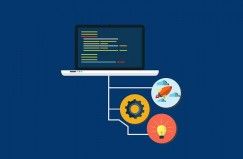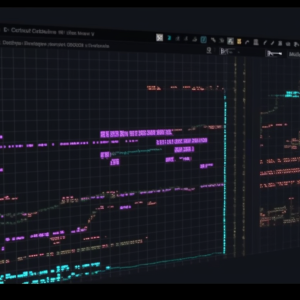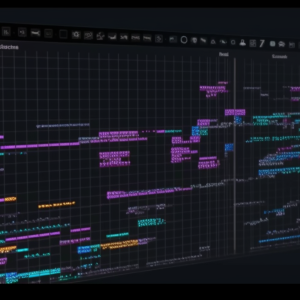“Work smart, not hard” is a saying that we have heard commonly. This mantra is now being integrated into programming and suggests that coding smarter is four-fold better than coding more complex codes.
Originally, developers relied on long complex codes to perform even the minutest jobs, but as time passed and more complex jobs were required of codes, long codes were nothing but a hassle. This gave birth to functional programming languages. Functional programming languages are used to define the structure and style of computer programs.
These language rely on mathematical functions to compute problems, which means that the results of a code are dependent on the arguments that are input into the function and not the statements. So, calling the same function numerous times will give you the same result, eliminating numerous glitches in the system.
Clojure is a powerful functional programming language.
Clojure is a dialect of LISP, which is a high-level programming language, and is created for running on Java Virtual Machines, JavaScript and Common Language Runtime engines. Similar to other LISP languages, Clojure has a macro system and treats code as data, which means the programming structure of the language is similar to the language’s syntax making it easier to understand by simply reading the text’s layout.
Clojure language encourages immutability and immutable data structures. Immutability is an object whose state cannot be modified after it is created. The language was developed to create more robust multithreaded programs. Rich Hickey wanted a LISP-based functional programming language that was symbiotic with an established platform and designed for concurrency, so he wrote one that performed all these tasks.
Here’s your chance to become an expert programmer by using few lines of code to achieve more, much more. Our course on Clojure is all you need.
Our Clojure tutorial is a comprehensive course designed to equip you with the conceptual understanding of Clojure and help you learn this terse language. In addition to Clojure, you will learn what is a Lisp dialect, what is Lambda Calculus, how are these terms related to Clojure. Then, you’ll delve into Clojure and its components including abstractions, forms, symbols, macros, functions, lists, vector types, sequences, data structures, etc.
Everything you need from theoretical to practical, this course has got it all. You will actually dissect small blocks of code to help you understand how it works and what goes in programming with Clojure. Additionally, you will also cover the development environments for Clojure such as Lenigen Environment and Gradle Environment.
At the end of this course, you will learn:
- The fundamentals of Clojure
- Basic Clojure syntax and introduction to forms, macros and functions
- Various different data types
- The fundamentals of functional programming and recursions
- Clojure and its concurrency, as well as Clojure Memory Model, Atoms, Agents, Core.async and CSP (Communicating sequential processes)
- Clojure Build Tools, Translation Engine, Modular Programming and Process Pattern
- Clojure Applications including Clojure Rest Application and Clojure Rest Client Application
So, enroll now and break away from the herd. Start smart coding not hard coding.
–










There are no reviews yet.